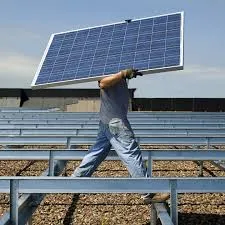Cost Analysis of Residential Solar Panels for Homeowners
The Price of Solar Panels for Home An In-Depth Overview
In recent years, the demand for renewable energy has surged, with solar power emerging as a leading choice for homeowners looking to reduce their carbon footprint and save on energy costs. One of the key considerations for anyone thinking about installing solar panels is the price. Understanding the cost of solar panels for home installations involves looking at various factors, including the type of solar panel, installation costs, government incentives, and long-term savings.
The Cost Breakdown
The price of solar panels can vary widely based on several factors. On average, the cost of solar panels in the United States runs between $15,000 and $25,000 for a typical residential installation before any tax credits or incentives are applied. This range typically includes the panels themselves, inverters, mounting equipment, and installation labor.
1. Type of Solar Panels There are mainly three types of solar panels available in the market monocrystalline, polycrystalline, and thin-film. Monocrystalline panels tend to be the most efficient and have the highest cost per watt, typically ranging from $0.80 to $1.20 per watt. Polycrystalline panels are generally less expensive but also slightly less efficient, costing about $0.70 to $1.00 per watt. Thin-film panels, while cheaper, are less efficient and usually require more space, costing around $0.50 to $0.70 per watt.
2. Installation Costs Labor costs can also significantly affect the total price of solar panel installation. These costs vary based on location, the complexity of the installation, and the company chosen for the job. On average, installation can account for 10% to 20% of the total cost of the system.
3. Additional Equipment Inverter systems, which convert DC electricity generated by the panels into AC electricity used in homes, also contribute to the overall price. Battery storage systems for those seeking off-grid capabilities or backup power during outages can add several thousand dollars to the total cost.
Government Incentives and Financing Options
price of solar panel for home

One of the most significant advantages for homeowners considering solar panels is the availability of government incentives. The federal solar tax credit allows homeowners to deduct a significant percentage of their solar installation costs from their federal taxes. This tax credit, currently set at 30%, can substantially reduce the upfront cost of solar systems. Additionally, some states and local governments offer rebates or grants that further decrease costs.
Financing options also play a crucial role in making solar energy more accessible. Many solar companies provide flexible payment plans, leasing options, and power purchase agreements (PPAs) that allow homeowners to manage the initial costs while still benefiting from solar energy savings.
Long-Term Financial Benefits
While the initial investment in solar panels might seem daunting, the long-term savings can be significant. Homeowners can see a return on their investment through reduced electricity bills, especially in sunny regions where the amount of electricity generated can greatly offset usage. On average, plan owners can save anywhere between $10,000 to $30,000 over 20 years depending on their location, energy consumption, and energy prices.
Moreover, solar panels can increase property value. Homes equipped with solar energy systems often sell at a premium compared to similar homes without solar. Studies suggest that solar homes can sell for 4% to 6% more than comparable homes in their area.
Conclusion
The price of solar panels for home installation can fluctuate based on various factors, but the overall trend shows a decline in costs as technology advances and production scales up. Combined with government incentives and the potential for long-term savings, investing in solar energy can be a smart financial decision for many homeowners. As the world shifts towards more sustainable energy solutions, the allure of solar power continues to grow, making it a compelling option for modern homeowners.
-
String Solar Inverter: The High-Efficiency Solution for Smart Solar EnergyNewsJul.14,2025
-
Revolutionizing Rooftop Energy with the Power of the Micro Solar InverterNewsJul.14,2025
-
Power Independence with Smart Off Grid Solar Inverter SolutionsNewsJul.14,2025
-
On Grid Solar Inverter: Powering the Future with Smart Grid IntegrationNewsJul.14,2025
-
Monocrystalline Solar Panels: High-Efficiency Power for the Future of Clean EnergyNewsJul.14,2025
-
Bifacial Solar Panel: A Smarter Investment for Next-Generation Energy SystemsNewsJul.14,2025







